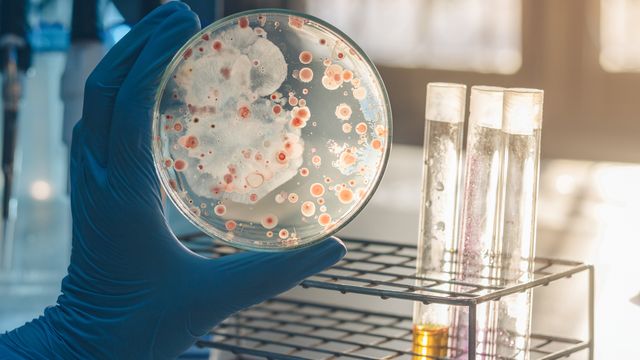Total Coliform and E. coli Culture Testing in Water
Waterborne diseases pose significant health risks to populations worldwide. Total coliforms and Escherichia coli (E. coli) are key indicators of water quality, especially concerning the presence of pathogenic microorganisms that can cause illness through contaminated drinking water or recreational waters.
Total coliform bacteria are common in the environment, including soil and vegetation. They do not necessarily indicate fecal contamination but suggest that conditions suitable for pathogens may be present. E. coli is a subgroup of total coliforms found in human and animal intestines, which makes it a more specific indicator of faecal pollution.
Regulatory standards such as ISO 16140-3:2015, ASTM D1982, and EN ISO 9308-3 specify methods for detecting total coliforms and E. coli in water samples. These protocols are crucial for ensuring that drinking water meets safety requirements set by international bodies like WHO (World Health Organization).
Our laboratory employs advanced microbiological techniques to perform these tests, including membrane filtration and multiple tube fermentation systems. After sample preparation, we incubate cultures at specific temperatures over defined periods to observe the growth of bacteria colonies.
The process involves collecting water samples from various sources, transferring them into suitable containers, and preserving them under appropriate conditions before analysis. Specimen preparation is critical; it includes diluting large volumes of water with sterile media, filtering through membranes, and inoculating cultures into selective media that encourage the growth of target organisms.
Instruments used in our laboratory include autoclaves for sterilizing equipment, incubators for maintaining optimal temperatures during bacterial growth, spectrophotometers to quantify turbidity or optical density, and automated colony counters for accurate enumeration. Our analysts rigorously follow standard procedures outlined by the aforementioned international standards to ensure high accuracy.
Following incubation, positive colonies are identified through biochemical tests like IMViC (Indole-Methyl Red-Vogel's Citrase) reactions or enzyme assays targeting specific E. coli antigens. Positive results for total coliforms indicate potential contamination, while confirmation of E. coli presence signals a higher risk level.
- Our testing process aligns with international guidelines ensuring reliable detection.
- We provide rapid turnaround times to facilitate timely decision-making by stakeholders.
- Comprehensive reports are delivered, detailing findings and recommendations for corrective actions if necessary.
- We maintain strict quality control measures throughout the entire testing cycle.
Eurolab Advantages
At Eurolab, we pride ourselves on offering unmatched expertise in microbiological analysis. Our team comprises highly qualified professionals with extensive experience in water quality assessment and regulatory compliance.
We offer several advantages over other service providers:
- Dedicated Resources: Our laboratory is equipped with state-of-the-art facilities, including advanced microbiological incubators and spectrophotometers. We also have dedicated personnel trained specifically in water quality testing.
- Prompt Turnaround Times: Thanks to efficient workflows and streamlined processes, we can deliver results quickly without compromising on accuracy or reliability.
- Comprehensive Reporting: Every test comes with detailed reports tailored to your needs. These include raw data, statistical analysis, and actionable insights based on current standards like ISO 16140-3:2015.
We also provide ongoing support through our dedicated customer service team, ensuring that any queries or concerns are addressed promptly and effectively.
Quality and Reliability Assurance
Eurolab is committed to delivering consistent excellence in all aspects of our operations. Our quality management system (QMS) is certified by ISO/IEC 17025, which guarantees that we meet the highest standards for technical competence.
Our laboratories undergo regular audits conducted by independent third parties who assess compliance with relevant regulations and best practices. This ensures continuous improvement in our services while maintaining consistency across all projects undertaken.
We employ rigorous quality assurance protocols throughout every step of the testing process, from sample collection to final report generation. These include strict adherence to international standards such as ISO 16140-3:2015 and ASTM D1982, ensuring that our results are accurate, reliable, and comparable with those from other reputable laboratories.
To further enhance trustworthiness, we participate in proficiency testing programs organized by recognized bodies like A2LA (Accreditation Laboratory Association). Participation in such schemes demonstrates our commitment to excellence and provides an additional layer of assurance for clients.
Environmental and Sustainability Contributions
- We contribute positively to environmental sustainability by providing accurate data that informs better decision-making regarding water quality. This helps reduce the risk of diseases caused by contaminated water sources, promoting healthier communities.
- Our expertise in microbiological testing supports efforts towards reducing pollution levels in aquatic environments, contributing to cleaner waters and healthier ecosystems.
- By adhering strictly to international standards and participating in proficiency testing programs, we help maintain the integrity of environmental monitoring systems globally. This promotes transparency and trust among stakeholders involved in protecting natural resources.





